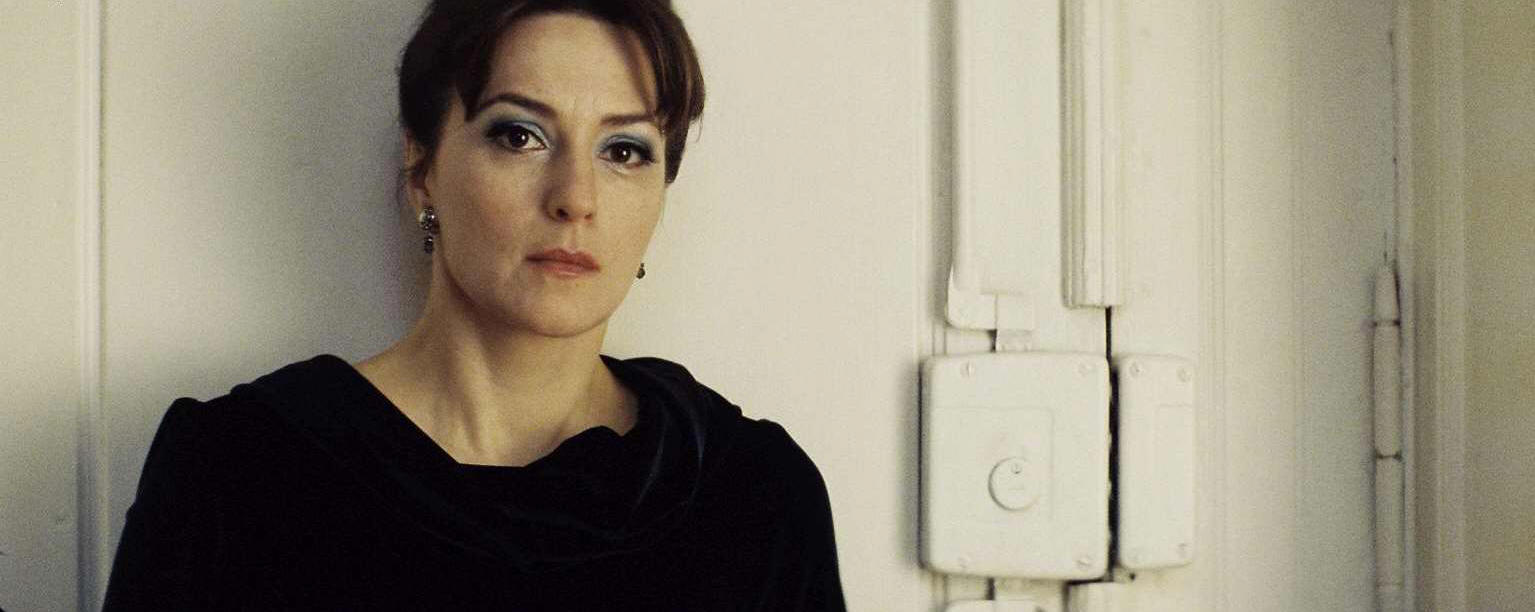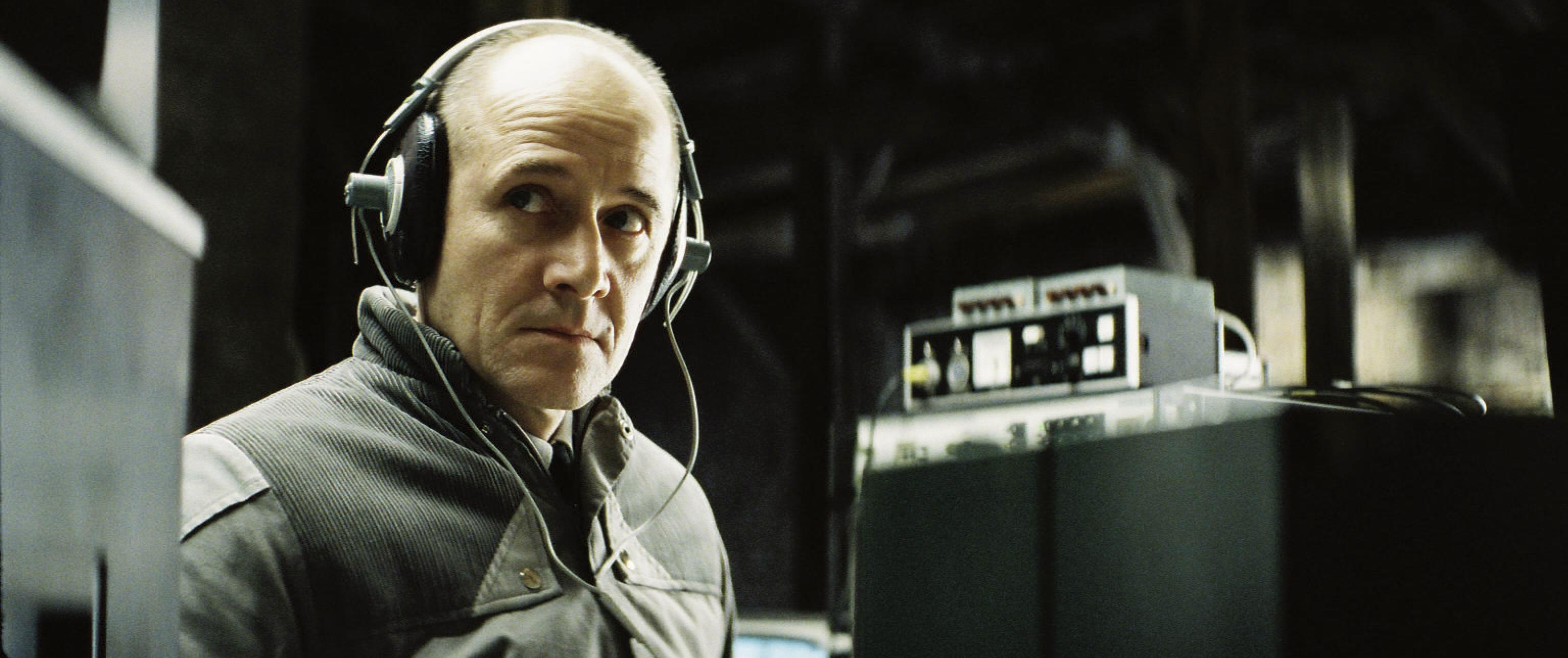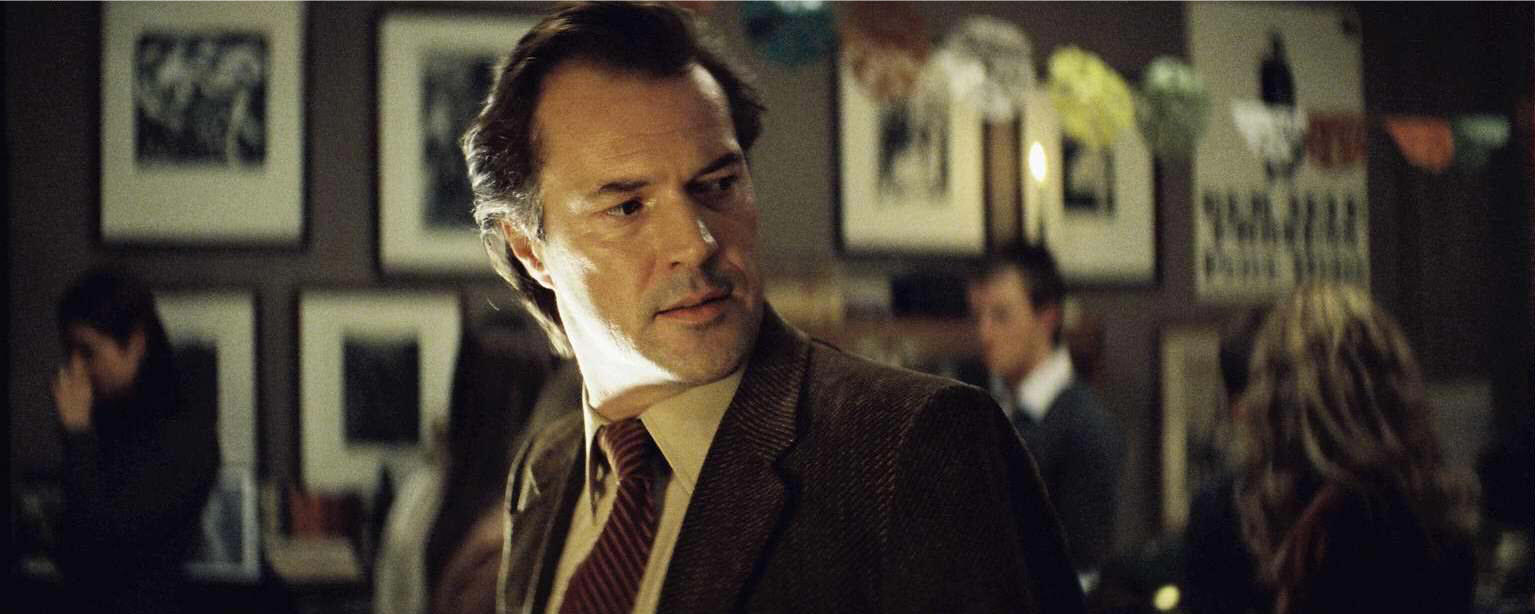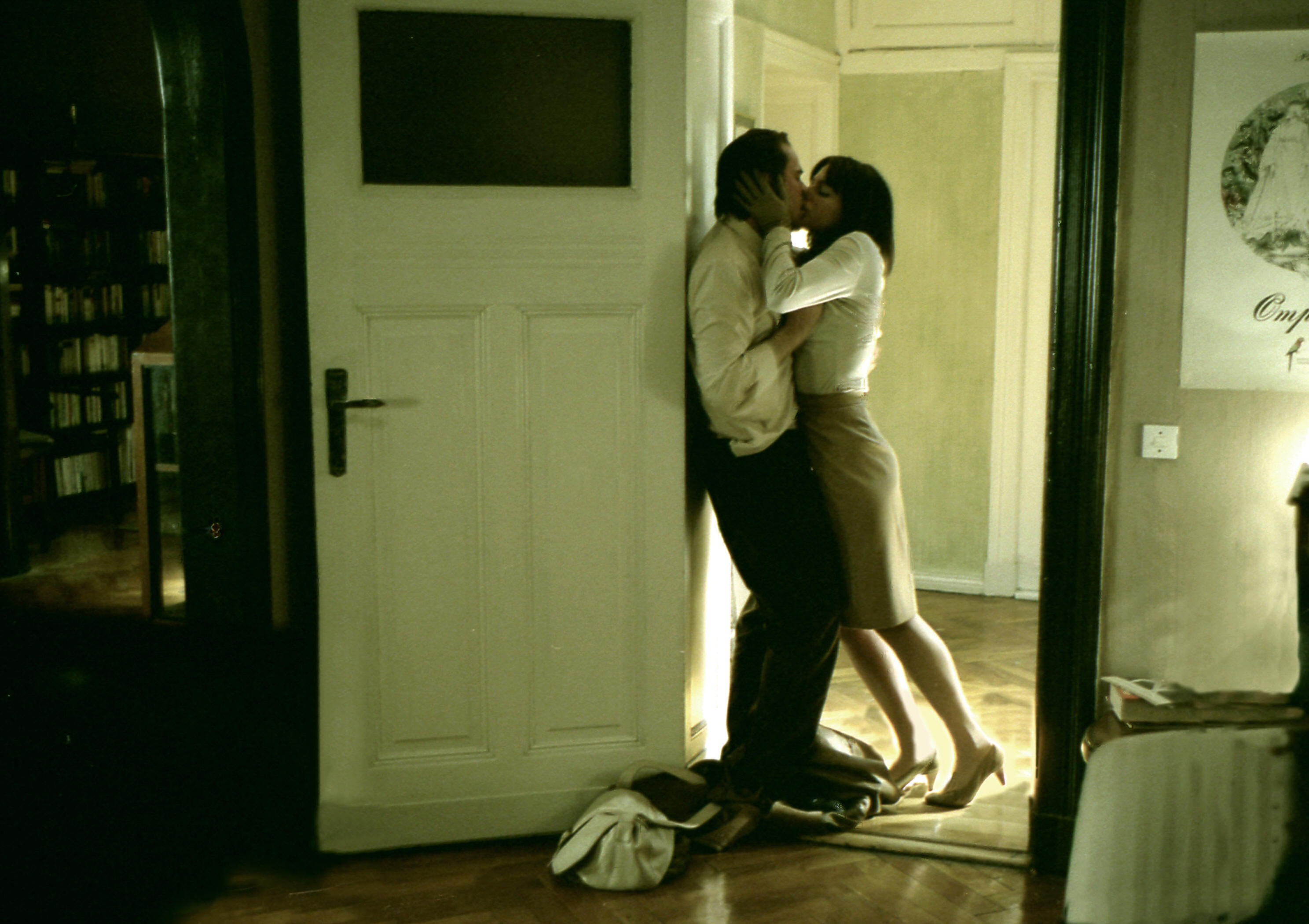
In Germany (1984-1991), Where The Eyes Of The State Are Upon You And Yours
PopcornReel.com Movie Review: "The Lives Of Others"
By Omar P.L. Moore/February 16, 2007
THE LIVES OF OTHERS (DAS LEBEN DER ANDEREN)

In Germany (1984-1991), Where The Eyes Of The State Are Upon You And Yours
PopcornReel.com Movie Review: "The Lives Of Others"
By Omar P.L. Moore/February 16, 2007



Eyes Wide Open: Big Brothers and Sisters? From top, Martina
Gedeck as Christa-Marie Seland, middle photo: Ulrich Muhe as Captain Gerd
Wiesler; and above, Sebastian Koch as acclaimed writer Georg Dryman, in Florian
Henckel von Donnersmarck's "Das Leben Der Anderen" ("The Lives Of Others.")
(All photos in this review: Hagen Keller/Sony Classics)
Florian Henckel von Donnersmarck directs Das Leben Der Anderen (aka "The Lives
Of Others") with such immense confidence that it is amazing to find out that
this is his very first feature film, which also happens to the year's best so
far. "Lives" begins in 1984 Germany during the waning years of the
Communist German Democratic Republic, where its Party Leader Erich Honecker
rules and the East and West halves of the country fear each other even as the
end of the Republic is slowly but surely in sight. Von Donnersmarck's film
spans eight years, ending two years into the infancy of a re-unified Germany,
which came about during mid-November 1989 with the fall of the Berlin Wall.
Ulrich Muhe plays Captain Gerd Wiesler, a surveillance investigator who conducts
round-the-clock eavesdropping on a married artist couple, one a renowned and
beloved actor Christa-Marie Sieland (played wonderfully by Martina Gedeck) and
the other Socialist Germany's most loyal and prolific writer Georg Dreyman
(Sebastian Koch). Both pledge allegiance to the Republic but apparently
that's not good enough for Lieutenant Colonel Grubitz (Ulrich Tukur) an ardent
rank-and-file man who has ordered the surveillance of the couple anyway.
As the surveillance progresses, lives get entangled and the allegiance to the
job faces tough hurdles. Even as the Republic's days are numbered,
persistence with the task at hand is imperative. Wiesler knows that soon
the GDR will be thing of the past but is fiercely committed to his work.
Days and nights and nights and days pass, and the headphones he has been wearing
on his all-hearing ears have uncovered nothing especially remarkable.
A piece of music however, is one of the notable turning points in "The Lives Of
Others", and it does things to completely change the direction of the story.
It is a touching and significant moment in this phenomenally great and
evenly-paced film.
Georg Dryman's associates include a far-left wing agitator and artist who has
given up on trying to play things safe in East Berlin, and a once-legendary
author whose time in the spotlight has passed. The author character,
Albert Jerska, is portrayed by Voltmar Kleinelt as an unsentimental man
reflecting on a Republic that has beaten him down with its omnipotence.
Despite his own weariness, Jerska tries to encourage Georg to keep finding his
voice by writing new and fresh literary work which critiques the ever-increasing
intensity of surveillance in the country on its citizenry by the Stasi, the
German government's secret police authority conducting the widespread spying
operations. Dryman's associates and confidantes hold meetings in what seem
to be the safest of places to discuss plans of action. Dryman's
relationship with wife Christa-Marie seems at an all-time high, and their
careers cannot soar higher.

The piece of floorboard underneath the feet of Sebastian
Bach and Martina Gedeck is a character unto itself in Florian Henckel von
Donnersmarck's exceptional film "Das Leben Der Anderen" ("The Lives Of Others"),
which expands its release in several countries, including the U.S., today.
While the married artists debate, make love, and argue, their every move is
being watched. For one of the Stasi's surveillance team, ogling the couple
is pure titillation but for Wiesler there is something more, something deeper --
and it shows in his eyes.
There is a strength to Von Donnersmarck's writing and dialogue which is
undeniable, indescribable and wholly authentic. The director did some
research, but did not have to go too far -- he was a product of the environment
that he has chronicled so well. His parents were from the East and spent
time in West Germany, where the director was born 33 years ago. They faced
a lot of scrutiny and experienced heightened tension during the GDR era.
Some of the film's actors themselves had been under very close watch by the
repressive Stasi in real-life, including Ulrich Muhe and Voltmar Kleinelt.
As Wiesler, Ulrich Muhe's portrayal is excellent, as are the performances of all
of the cast. Muhe's Wiesler is a sad, isolated figure whose own compassion
and existence are put to a severe test in "The Lives Of Others" and it is a
revelation to see such good acting.
Much of the film's superb cinematography by Hagen Bogdanski evokes a blandness
of blue, grey and dark green, a color palette, along with a yellowish bronze,
that conveys a soulless, plain and robotic existence of the lives which defined
the era from 1984 to 1989, and then into 1991. Gabriel Yared's music score
is rich and overwhelming. It is palpable like a heartbeat in the
conscience of the audience and the characters it is watching.
"The Lives Of Others" is not just about the power of the state
to shape and control the lives of its citizenry; it is much more about the
effect the machinery of that apparatus has on the personal lives of its
participants, whether it be those in the Stasi or the actors and subjects being
spied upon. There are some tender moments within both camps, especially
after the Wall has fallen. The scope of Mr. von Donnersmarck's film is
breathtaking, and the evolution of the three main characters as they journey
from accustomed to unaccustomed political atmospheres is one of the most
rewarding aspects of a directing debut that is mature beyond Mr. von
Donnersmarck's years. There is a Greek tragedy of sorts in the film and it
makes the dilemmas and situations faced by the main characters all the more
real, painful and complicated. Events occur within the flow of this great
story and not out of left field. A natural progression and order, with
subtlety and drama fuels a narrative which at times is riveting. "Lives"
is replete with agonizing decision-making, contradiction, substantial irony and
abundant humor -- humor which may not necessarily be expected in a film about
such a serious subject. The film's title takes on more than one meaning
and there are some heartfelt (and heartbreaking) moments from lives on a
political stage that has its performers and its actors. Who performs and
who acts (and there is a difference) makes for interesting, fascinating and
amazing drama, for which audiences will be thankful that Florian von
Donnersmarck and his crew and actors have provided.
"The Lives Of Others" is Germany's entry this year in the 79th Annual Academy
Awards, in the Best Foreign Language Film Category. The film won Best Film
at last December's European Film Awards, and Ulrich Muhe won Best Actor.
If Academy voters choose it on February 25, it will have made the right
decision.
"The Lives Of Others" is a must-see film.
"The Lives Of Others" is rated R by the Motion Picture
Association of America for some sexuality/nudity. The film's duration is
two hours and seventeen minutes, and is in German language with English
subtitles in its U.S. release. The film also opens in Spain today and will
be in several other countries soon. Last week the film was released in New
York City and Los Angeles, where it continues. Tomorrow: an interview with
Florian Henckel von Donnersmarck.
![]()